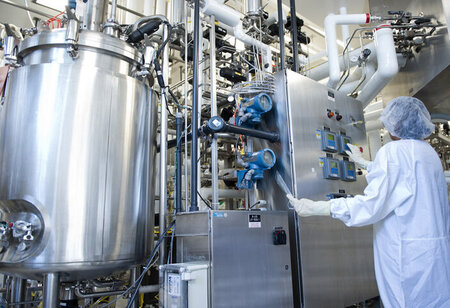
Union Finance Minister Nirmala Sitharaman has unveiled a new initiative aimed at fostering bio-manufacturing and bio-foundry to enhance the production of renewable energy and sustainable products aligning with India's ambitious net zero goals by 2070. The program is set to facilitate the development of eco-friendly alternatives, including biodegradable polymers, bio-plastics, bio-pharmaceuticals, and bio-agri-inputs. Sitharaman emphasized the transformative impact of this scheme, envisioning a shift from current consumptive manufacturing practices to regenerative principles.
As part of the sustainability drive, Sitharaman announced the phased mandatory blending of compressed biogas (CBG) in compressed natural gas (CNG) for transportation and piped natural gas (PNG) for domestic purposes. This move is poised to contribute significantly to greening the gas supply chain and reducing reliance on conventional fossil fuels.
In her budget speech, Sitharaman stressed the importance of the new scheme in promoting a regenerative approach to manufacturing, marking a positive step toward inclusive growth for the farming community. Praj Industries' Executive Chairman, Pramod Chaudhari, welcomed the initiative, noting its potential to enhance the bio-economy's contribution to the nation's GDP.
The budget announcement includes financial assistance for the procurement of biomass aggregation machinery, aimed at supporting biomass collection. This measure is anticipated to establish a resilient feedstock supply chain, ensuring the availability, accessibility, and affordability of bio-based feedstocks. SN Goel, Chairman and Managing Director of Indian Energy Exchange, expressed optimism about the financial assistance contributing to building investor confidence in establishing bio-refineries.
The International Energy Agency (IEA) projects that, with appropriate government policies, bioenergy could generate 130 million tonnes of oil equivalent (Mtoe) of useful energy by 2040, constituting about 15% of India's total energy demand. Currently, India possesses 750 million metric tonnes (MMT)/year of biomass, with a surplus availability of 230 MMT/year. A PwC report reveals that 32% of India's total primary energy use is derived from biomass, with over 70% of the population relying on biomass across the energy value chain.
India has seen the installation of over 800 biomass power projects, bagasse cogeneration, and non-bagasse cogeneration projects with a combined capacity of 10,632 MW for power generation and 140 TPD for CBG production. The Ministry of New and Renewable Energy (MNRE) has already initiated the National Bioenergy Programme from April 2021 to March 2026, allocating ₹858 crore to boost bio-energy in the country.
The Sustainable Alternative Towards Affordable Transportation (SATAT) scheme by the Ministry of Petroleum and Natural Gas focuses on CBG production, aiming for 15 MMT of CBG from 5000 plants. India's National Biofuels Policy 2018 targets achieving a 10% ethanol blending rate by 2022 and 20% by 2030, accelerated to 2025. Additionally, the Innovation Roadmap of the Mission Integrated Biorefineries, launched two years ago, signifies India's commitment to advancing sustainable bio-manufacturing practices through global collaboration.

